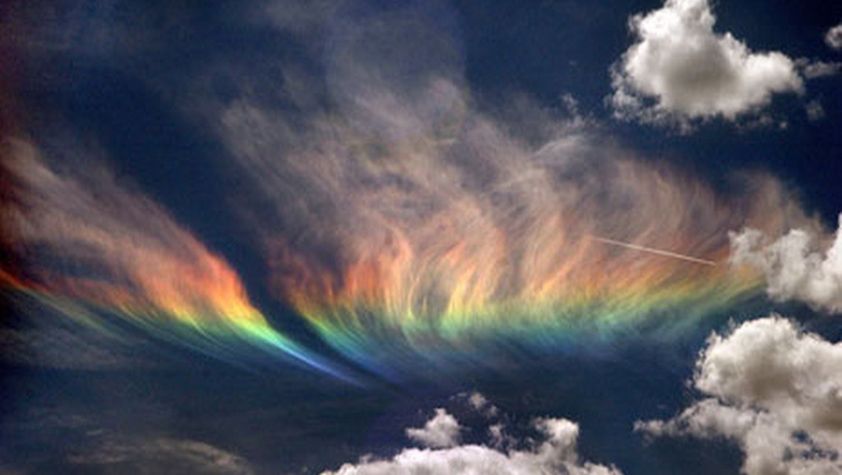Does this count as a chemical reaction?
Exploring the latest in scientific discoveries from prehistoric life to missions to Mars. Solar radiation storms occur when a large-scale magnetic eruption, often causing a coronal mass ejection and associated solar flare, accelerates charged particles in the solar atmosphere to very high velocities.
The human brain is a fascinating and complex organ. Beyond its ability to help us reason, function and think, it plays some crazy tricks on us. All throughout history, humans have experienced things called psychological phenomena - mind tricks that sometimes defy explanation but are experienced by most people. A transient lunar phenomenon (TLP) or lunar transient phenomenon (LTP) is a short-lived light, color or change in appearance on the surface of the Moon.The term was created by Patrick Moore in his co-authorship of NASA Technical Report R-277 Chronological Catalog of Reported Lunar Events, published in 1968.
How do we know?
What are the chemicals?
Why are they reacting?
Where is the energy coming from?
Where is the energy going?
How is is being released?
How was it stored in the first place?
Is there something about the material?
Can Crosscutting Concept questions help us figure this out?

1. What patterns do I notice in this phenomenon?
2. What are the boundaries of this phenomenon? What are its components and how do they interact?
3. What is going on at the unobservable level to cause the observable features or processes?
Ced driver download for windows. 4. What scale or scales account for this phenomenon and how do I describe it quantitatively?
5. How do energy and/or matter flow into, out of, or within the boundaries of the phenomenon?
6. How does the structure of the phenomenon (or its components) relate to its function?
7. Under what conditions is this phenomenon stable? Under what conditions does it change?
(List originally from the brilliant educator Heather Milo !!)
DISCIPLINARY CORE IDEAS
PS1.A: STRUCTURE AND PROPERTIES OF MATTER
Substances are made from different types of atoms, which combine with one another in various ways. Atoms form molecules that range in size from two to thousands of atoms. (MS-PS1-1)
Solids may be formed from molecules, or they may be extended structures with repeating subunits (e.g., crystals). (MS-PS1-1)
PS1.B: CHEMICAL REACTIONS
Substances react chemically in characteristic ways. In a chemical process, the atoms that make up the original substances are regrouped into different molecules, and these new substances have different properties from those of the reactants. (MS-PS1-2),(MS-PS1-3),(MS-PS1-5)
The total number of each type of atom is conserved, and thus the mass does not change. (MS-PS1-5)
Some chemical reactions release energy, others store energy. (MS-PS1-6)
PS3.A: DEFINITIONS OF ENERGY
The term “heat” as used in everyday language refers both to thermal energy (the motion of atoms or molecules within a substance) and the transfer of that thermal energy from one object to another. In science, heat is used only for this second meaning; it refers to the energy transferred due to the temperature difference between two objects. (secondary to MS-PS1-4)
The temperature of a system is proportional to the average internal kinetic energy and potential energy per atom or molecule (whichever is the appropriate building block for the system’s material). The details of that relationship depend on the type of atom or molecule and the interactions among the atoms in the material. Temperature is not a direct measure of a system's total thermal energy. The total thermal energy (sometimes called the total internal energy) of a system depends jointly on the temperature, the total number of atoms in the system, and the state of the material. Avstar driver download. (secondary to MS-PS1-4)
What is the science behind this?? Note: do not look here until you have tried writing your own explanations! - http://jchemed.chem.wisc.edu/blog/how-does-orange-peel-pop-balloon-chemistry-course
Performance Expectation
MS-PS1-2.
Analyze and interpret data on the properties of substances before and after the substances interact to determine if a chemical reaction has occurred. [Clarification Statement: Examples of reactions could include burning sugar or steel wool, fat reacting with sodium hydroxide, and mixing zinc with hydrogen chloride.][Assessment boundary: Assessment is limited to analysis of the following properties: density, melting point, boiling point, solubility, flammability, and odor.]
Also found in: Thesaurus, Medical, Encyclopedia, Wikipedia.
phe·nom·e·na
(fĭ-nŏm′ə-nə)phe•nom•e•non
(fɪˈnɒm əˌnɒn, -nən)n., pl. -na (-nə) or, esp. for
Phenomena Def
3, -nons.Phenomenology
phenomena
- cosmology - The study of the world as a totality of all phenomena in space and time.
- noology - The science of intuition and reason as phenomena of the mind.
- ontology, phenomenology - Ontology is the branch of metaphysics concerned with the nature or essence of being or existence, the opposite of phenomenology, the science of phenomena.
- second nature - Originally Latin secundum naturam, 'according to nature,' it is from Aristotelian philosophy and contrasts with phenomena that are super naturam ('above nature,' such as God's grace), extra naturam ('outside nature'), supra naturam ('beyond nature,' such as miracles), or contra naturam ('against nature').
Want to thank TFD for its existence? Tell a friend about us, add a link to this page, or visit the webmaster's page for free fun content.
Phenomenal Definition
Link to this page:
Phenomena Definition

Comments are closed.